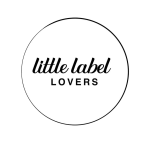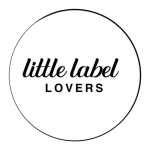* Terminology:
– B Corp certified: Certification for socially responsible businesses, available globally. It is based on an assessment standard (B Impact Assessment) developed by B Lab to measure business impact objectively. It verifies a company’s performance across a broad range of categories: governance, workers, community, consumers, and environment. It is aligned with other international standards like ISO 26000.
– BCSI protocol (Business Social Compliance Initiative): includes fundamental principles based on the labor standards of the International Labor Organization, the UN Charter for Human Rights, and other important international and national human rights regulations. They provide a thorough assessment of whether our suppliers’ facilities meet all requirements of the BCSI code of conduct such as:
• Correct working hours and fair remuneration
• Environmental protection
• Healthy and safe working conditions
• No child labor and protection for younger workers
• No discrimination
• No forced labor
– Bio-based materials: materials that are made from renewable resources and consist at least partially of biological materials.
– Biodegradable: capable of being broken down
– BPA-free materials: do not contain any traces of Bisphenol-A.
– Circularity: practices that optimize resource use and minimize waste across the entire production and consumption cycle, emphasizing sustainability and economic efficiency.
– Code of Conduct: a defined set of rules, principles, values, employee expectations, behaviors, and relationships that a business considers important and believes necessary for its success.
– Global Platform for Sustainable Natural Rubber (GPSNR): it is focused on eliminating deforestation and ecosystem conversion from the supply chain and safeguarding human rights across all operations. The commitment also aligns with the principles and guidelines in the UN Guiding Principles for Business and Human Rights and the ILO fundamental conventions.
– ISO 14001: the international standard that specifies requirements for an effective environmental management system (EMS). It provides a framework that an organization can follow, rather than establishing environmental performance requirements.
– ISO 9001: defined as the internationally recognized standard for Quality Management Systems (QMS).
– OEKO-text standard 100: a globally standardized, independent testing and certification system for textile raw materials, intermediate and end products of all processing stages, and accessory materials.
– Organic cotton: naturally cultivated cotton without the use of any synthetic agricultural chemicals such as fertilizers pesticides or transgenic technology.
– The A-label means that the product meets the severe safety requirements made by the Joint Council of Creative and Hobby Materials (FFFH). The A-label specifically applies to products that are in close contact with the skin, ensuring that these products are safe to use, allergy-approved, and free from harmful chemicals that may cause skin reactions.
– The Better Cotton Initiative (BCI): BCI connects people and organizations throughout the cotton sector, from field to store, to promote measurable and continuing improvements for the environment, farming communities, and the economies of cotton-producing areas.
– the Global Organic Textile Standard (GOTS-certified): a set of criteria that ensures the end-to-end garment production process is carried out sustainably and ethically. A set of requirements must be met for garments to be deemed GOTS-certified.
– The Global Recycled Standard (GRS): a certification program for products made from recycled materials. It sets requirements for the content, processing, and traceability of recycled materials in various industries, including textiles. GRS certification indicates a commitment to reducing resource consumption, promoting recycling, and supporting a more sustainable, circular economy.
– The Organic Content Standard (OCS): a certification that verifies the organic status of textiles and products made from organic materials. It ensures transparency in the organic supply chain by tracking the organic content from the raw material source to the final product. OCS-certified products provide consumers with confidence that they are purchasing items made with genuine organic materials.
– The Recycle Claim Standard (RCS): a certification system that verifies the presence and percentage of recycled materials in a product. It offers transparency and credibility in claims about recycled content, helping consumers make informed choices. RCS ensures that products containing recycled materials adhere to specific standards, promoting sustainability and resource conservation.
– The Responsible Wool Standard (RWS): a certification system that promotes sustainable and ethical practices in the wool industry. It sets guidelines for animal welfare, land management, and social responsibility, ensuring that wool is produced with minimal environmental impact and respect for animals. RWS-certified wool guarantees a more responsible and eco-friendly choice for consumers.
– Waste management: the processes involved in managing waste from cradle to grave. This includes the collection, transportation, disposal/recycling, and monitoring of waste materials produced as a result of human activity.

